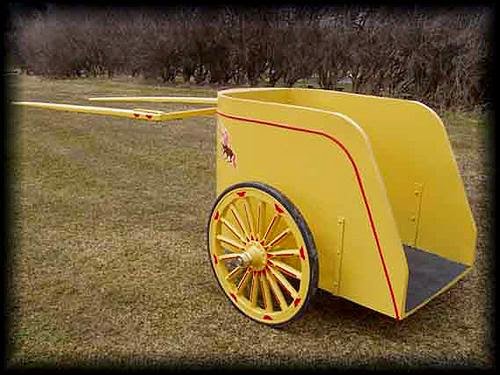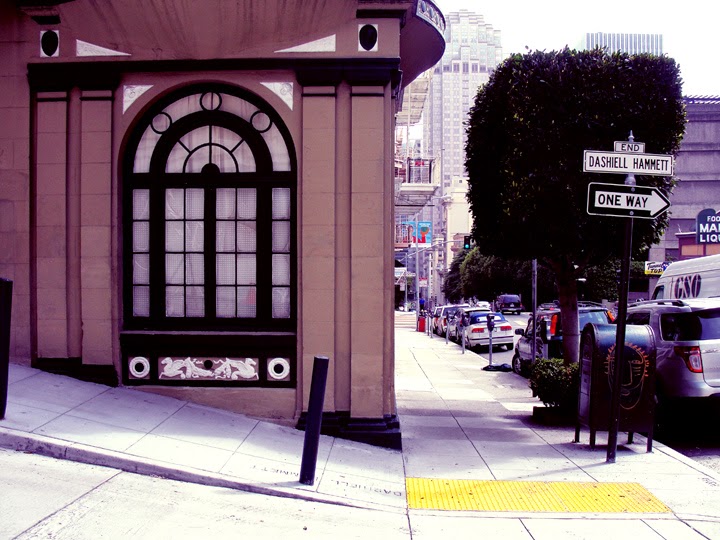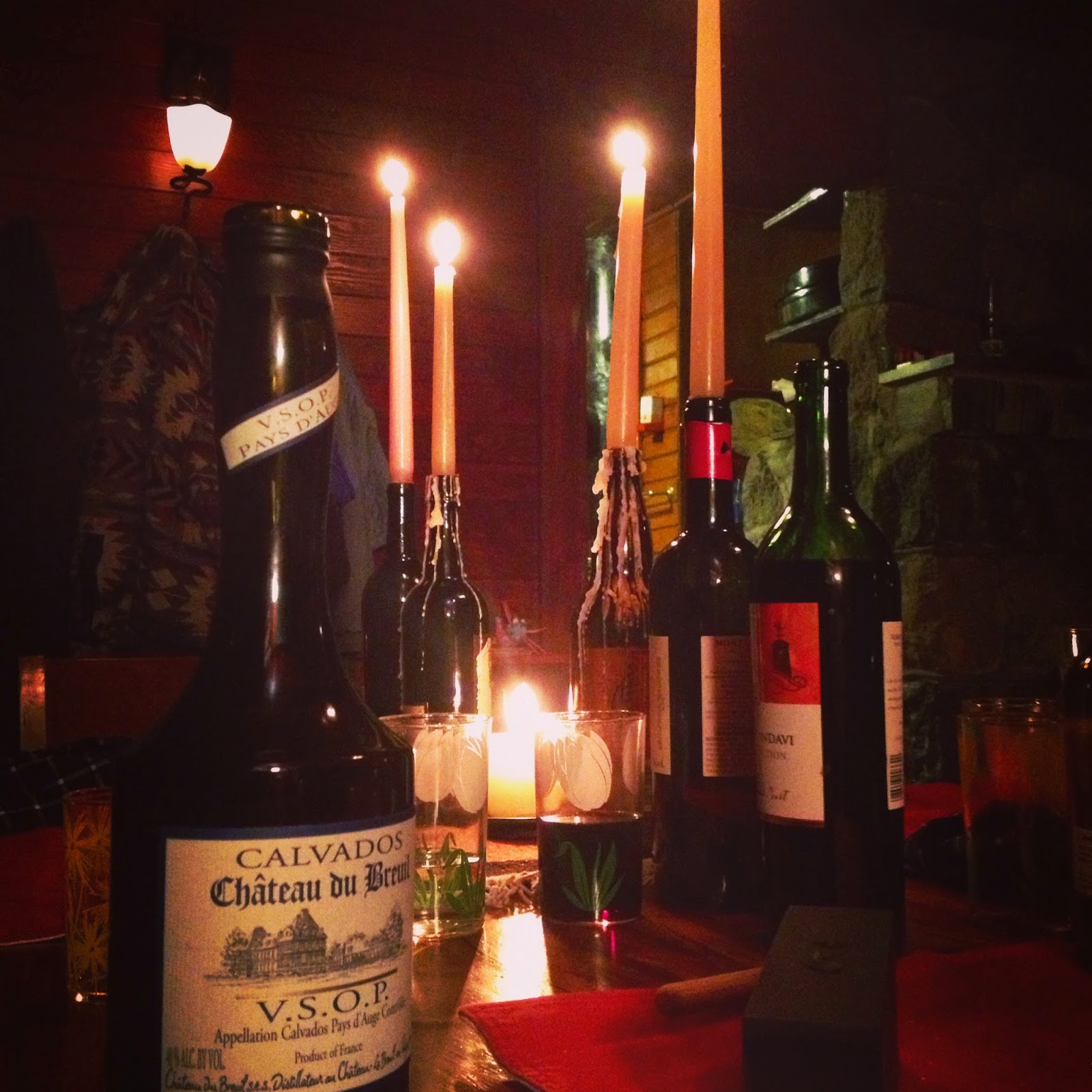"rainbow to windward, foul fall the day,
rainbow to leeward, rain runs away."
(a sailor's rhyme)
The other day, I had the good fortune of having drinks with this really cute dude who the bartender happened to describe as being "stuck in the horse latitudes". Come again?
According to my beloved Illustrated Encyclopedia from 1983, The horse latitudes refer to "Either of the two belts of latitudes located mostly over the oceans at about 30 to 35° north and south, having high barometric pressure, calms, light changeable winds, and fine weather."
There are two legends. The first details the economic peril of sailors, who, having been paid once for their journey, had the tendency to blow all their money at once, forcing them to become indebted to the captain; debt here becoming synonymous with 'dead horse'. Once they managed to pay the captain off, the sailors would make a fake horse, celebrate, and then throw it overboard.
Why would they chuck the horses? Well, the second legend says that historically, in these parts of the world, ships tended to lose momentum, making it difficult to keep hydrated their horse cargo. Once dead, these horses were tossed.
As is the case with most things ocean-oriented, the mystery continues. Having read an article trying to ascertain the origin of the term, it cited Edward Taube, from 1967. He claimed that at the end of the 17th century, "A ship that was horsed was being carried along by a strong current or tide, like a rider on horseback. He suggested that, in an area of light winds such as that found south of the Azores, currents would control the movement of the ship and the term might have been transformed to the location."
A1552 account named the area between the Canaries and Spain, El Golfo de las Yeguas, because many horses died at sea there.
In a letter from Clark Russell to Lady Maud, he wrote, "Nothing could have been more delightful that our run into the horse latitudes. Gales and dead calms, terrible thunderstorms and breezes, fair one hour and foul the next, are the characteristics of these parallels."
 Because of our epic storm, I've been inside reading (surprise surprise). I couldn't quite understand why this particular person was described as suffering from this fate, but I like the idea Taube brought up, of a ship being 'horsed', almost like being tugged.
Because of our epic storm, I've been inside reading (surprise surprise). I couldn't quite understand why this particular person was described as suffering from this fate, but I like the idea Taube brought up, of a ship being 'horsed', almost like being tugged. |
| Michelangelo's Night |
Naturally, that lead me to look up the history and symbolism of the chariot. Though rife with conflicting meanings, I like the Hindu belief, one that is similar to Jung. "The charioteer (thought) uses the reins (willpower and intelligence) to master the steeds (life force), tugging the chariot (the body)."
My Dictionary of Symbols described how all chariots differ in color and shape, and the animals that lead are dependent on the characteristic of the rein-holders. Apollo gets white horses, Dionysus has panthers, tigers or leopards. Rhea/Cybele: lions; Artemis/Diana: stags; Hera/Juno: peacocks; Poseidon/Neptune: sea horses; Hades/Pluto black horses; Aphrodite/Venus: doves or swans.
Nyx, the goddess of night and the mother of the fates, is dragged on a chariot led by black horses, bats or owls.
Obviously, our city is too young to have a history of overlords wheeling down Market Street in a chariot made of gold, but like the nature of the chariot, we have an extensive history of things pulling other things; namely, the tugboat.
Having been the leading whaling city in the country in the 1880s, not to mention the magnitude of the Gold Rush, the Golden Gate has seen its fair share of ships and subsequent wrecks.
Three notable ship wreck stories I read last night included King Phillip, the explosive Yosemite, and the little tugboat that couldn't, Rescue.
 |
| remains of King Phillip |
King Phillip wrecked in 1878 and was tugged to Ocean Beach where it promptly sank into the sand. Having been buried all this time, it was chiefly forgotten, that is until 1983, when it miraculously re-appeared. It turns out that nearly half of the vessel was still in tact! Sadly, when the city built the sewage system, it got buried again for another 22 years, until re-discovered again in 2010.
Yosemite was a cargo boat tugging 25 tons of dynamite. In 1926, it sent a distress call to the nearby schooner Willamette, safely rescuing its crew. As the boat was being tugged, again, to Ocean Beach, it broke free and smashed into a million bits against the Cliff House. Families came to visit and take selfies for weeks after.
Rescue is a sad little fella, having wrecked in 1874. "Though it was built to rescue other boats, it was not able to rescue itself after it struck rocks in a dense fog. A pleasure passenger, Thomas Markey, was swept into the ocean. His body has never been recovered."
 The most remarkable of all ship wrecks is the leading maritime mystery, the Bay Area's own Titanic. In 1901, Rio de Janeiro was sailing into the Golden Gate when it hit a rock while blinded by the permeating fog. Only 79 passengers of the 201 on board were saved. The ship sank immediately.
The most remarkable of all ship wrecks is the leading maritime mystery, the Bay Area's own Titanic. In 1901, Rio de Janeiro was sailing into the Golden Gate when it hit a rock while blinded by the permeating fog. Only 79 passengers of the 201 on board were saved. The ship sank immediately.
According to one account at the time: "There was not much confusion until fifteen minutes after striking, the bow of the vessel suddenly plunged underwater. Then there was a wild rush for the boats. A thick fog enveloped everything and as yet no sign had come from the life-saving station. Darkness was all about and with this added horror the people on the Rio had to cope."
Ironically enough, in an article put out by SFGate this morning, El Rio has been discovered!
But not without a bitter conclusion. Robert Schwemmer, Maritime Heritage Coordinator, said, "Many of these people were about to start a new life in a new country. They were only perhaps an hour away from the dock in San Francisco. That is something to think about."
 |
| Rio de Janeiro |
But enough about ships! Let's talk storms!
In re-reading Dracula, I came across this passage.
"The day was unusually fine till the afternoon, when some of the gossips who frequent the East Cliff churchyard, and from the commanding eminence watch the wide sweep of the sea visible to the north and east called attention to a sudden show of 'mare's tails' high in the sky to the northwest. The wind was then blowing from the southwest in the mild degree which in barometrical language is ranked 'No.2 light breeze.'"
First horse latitudes and now mare's tails?
Obviously, I looked it up.
 Mare's Tails and Mackerel Skies are clouds. Mackerel Skies refer to Cirro-cumulus clouds. According to the Landfall website, they "develop from cirrus clouds beginning to lower and clump together. Due to their relatively high altitude, they have a dappled look and a silvery sheen."
Mare's Tails and Mackerel Skies are clouds. Mackerel Skies refer to Cirro-cumulus clouds. According to the Landfall website, they "develop from cirrus clouds beginning to lower and clump together. Due to their relatively high altitude, they have a dappled look and a silvery sheen."
Mare's Tails, on the other hand, are basic cirrus clouds and the long-term weather forecasting cloud, "because they are formed by a thin layer of ice crystals. [It's] responsible for a blue sky gradually turning into a milky haze and thickening or 'lowering' weather."
Those clouds that are big, boxy, dark on the bottom and bright at the top? That's the Blacksmith's Anvil, or cumulo-nimbus.
"Then without warning the tempest broke, with a rapidity which, at the time, seemed incredible and even afterwards as impossible to realize, the whole aspect of nature at once became convulsed - the waves rose in growing fury, each overtopping its fellow, till a very few minutes the lately glassy sea was like a roaring and devouring monster." (Stoker)
Clearly, our storm is nothing in comparison.
Strangely enough, there is such a thing as a California Hurricane or a tropical cyclone. We've had our fair share history of them in the Golden Gate. In July of 1992, Hurricane Darby caused such cloudiness in California that the Space Shuttle Columbia had to detour to Florida. Our deadliest storm has gone un-named, but in 1939, somewhere between 45 and 93 people died. Whoa.
Last night, as I practiced my new cloud knowledge, I noticed that every house had its lights on, modern lighthouses all confronting whatever fate spilled from the hills.
"The worst part was that the rain was affecting everything and the driest machines would have flowers popping out among their gears if they were not oiled every three days, and the threads in brocades rusted, and wet clothing would break out in a rush of saffron-colored moss. The air was so damp that fish could have come in through the doors and swam out the windows, floating through the atmosphere in the rooms." (Gabriel Garcia Marquez).
And finally, from the collection of poems titled Horse Latitudes, by Paul Muldoon:
"Those weeks and months in the doldrums
Coming back as he ran her thumb
along an old Venetian blind
in the hope that something might come to mind,
that he might yet animadvert
the maiden name of that Iron Maiden
on which he was drawing a blank."











































